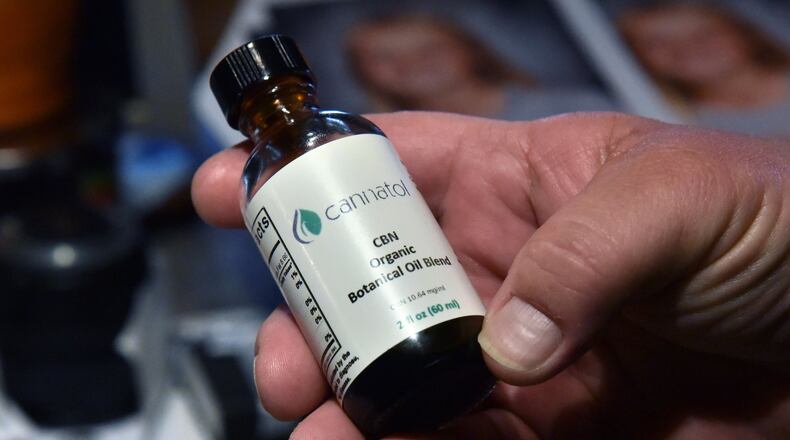The Georgia Senate passed a plan Thursday to downsize a key part of Georgia's medical marijuana law, despite warnings from advocates that it will alienate dozens of families and children who use cannabis oil to help treat debilitating conditions.
Senate Bill 16, sponsored by state Sen. Ben Watson, R-Savannah, would add one additional condition — autism — to the state's list of those eligible for use of the oil. However, it would also reduce the maximum THC level in the cannabis oil now allowed here from 5 percent to 3 percent, which backers of the plan said would bring the state more in line with others that also allow limited forms of the oil.
THC is the component in the drug that makes people high. While there have been no reported problems in Georgia with the state's low-THC oil program, some senators have expressed concern that the THC percentage is still too high.
Many of the more than a dozen states that have low-THC programs only allow percentages of 1 or lower. Advocates including doctors, however, have said while the oil generally has not worked for everybody, some patients respond better to cannabidiol with a higher percentage THC and would be negatively affected by the change.
Watson on Thursday also called for federal officials to reconsider the classification of marijuana as a Schedule I drug, the most dangerous class of drugs with a high potential for abuse and addiction, and no accepted medical uses, according to the U.S. Food and Drug Administration. Changing that classification would allow more freedom for sanctioned use of the drug in medical research studies.
“To say cannabidiol has no medicinal value is just not true,” said Watson, who is a medical doctor.
Under Georgia’s 2015 law legalizing limited use of medical marijuana, patients and, in the case of children, families who register with the state are allowed to possess up to 20 ounces of cannabis oil to treat severe forms of eight specific illnesses, including cancer, Parkinson’s disease and epilepsy.
Passage of SB 16 on a 41-12 vote sends it to the House, which is considering separate efforts including House Bill 65 and House Resolution 36 that would much more broadly expand the law.
About the Author
Keep Reading
The Latest
Featured



